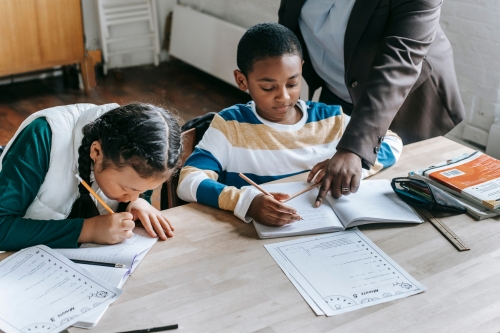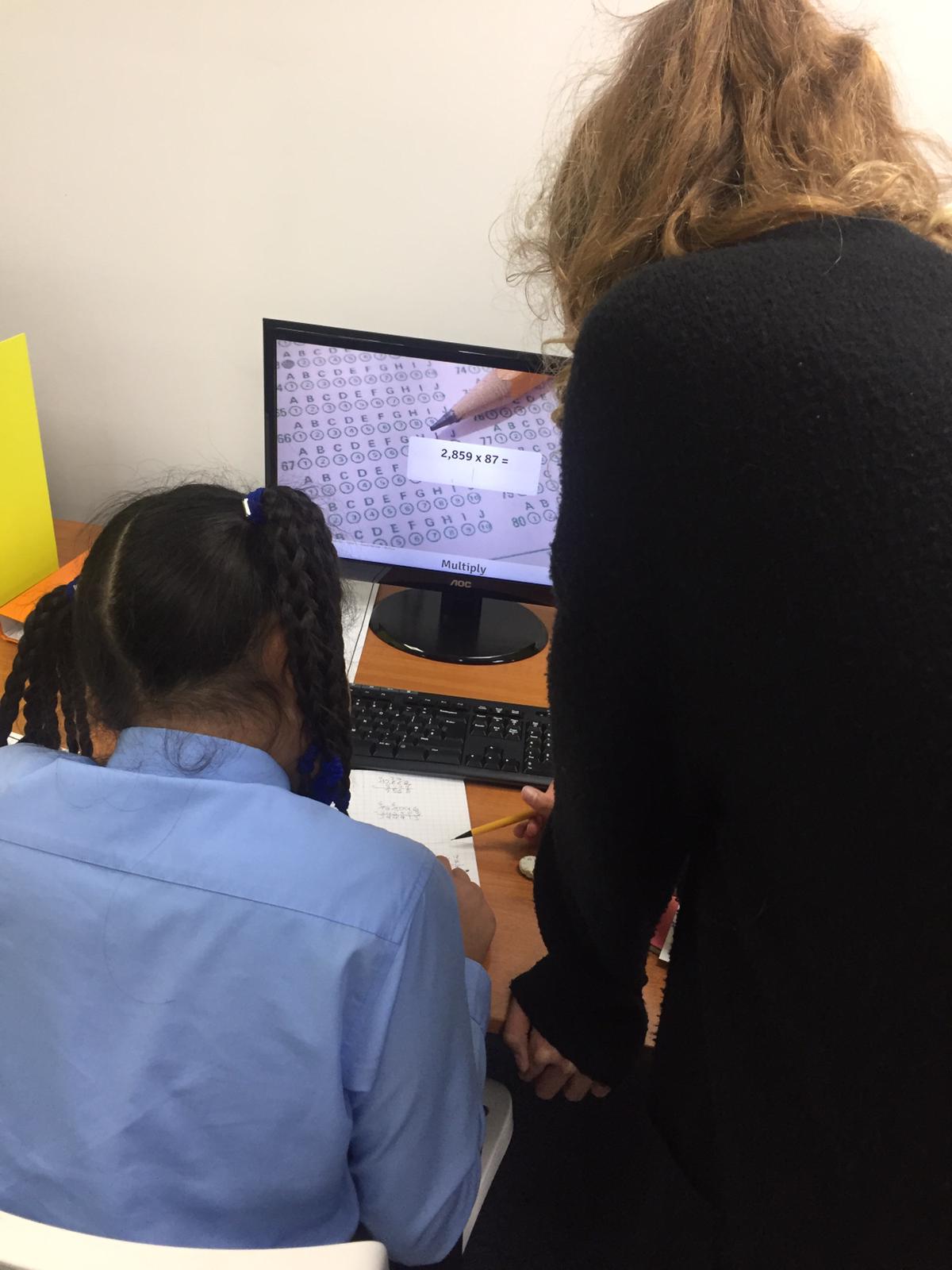How Would Your Child Benefit From After-School Tuition?

Whether your child isn’t quite where you’d like them to be with some subjects, or you want them to be fully prepared for a critical exam, after-school tuition could well be the solution you’re looking for.
Just think of the benefits:
- Enhanced academic performance
Clearly, this is one of the most important advantages. A lot of research points to after-school tuition improving students’ grades, with the most dramatic results often seen in the key subjects of English and maths. Private tuition, including tutor centres, can help pupils grasp complex concepts, in turn transforming the way they feel about learning, thanks to the extra time spent studying and going over the relevant material.
- Smaller groups
Tutees receive more intensive, tailored one-to-one attention than they would at most schools. According to the latest government figures, more than a million children in English schools are taught in classes of more than 30. Meanwhile, numbers of pupils in large classes in secondary schools rose by more than 200,000 between the 2015/16 and 2023/24 academic years.
The smaller setting of a tutoring centre also makes it easier to identify any potential specific learning difficulties.
- Quicker learning
Learning speed can accelerate with the support of a private tutor. It will be easier for kids to keep up in school, while the consolidation and going over the same material several times also makes for faster progress through the curriculum.
- Exam preparation
Whether your child is approaching public exams or entrance assessments for their secondary school of choice, they will have their best chances of success with the right preparation. Tutoring sessions offer exam strategies and practice plus tips on the right approach to tackling certain questions in a focused yet non-stressful setting, allowing for highly effective revision.
This kind of preparation, by the way, can also be very helpful when it comes to moving between years or schools, or transitioning to higher education or the workplace.
- Positive study habits
Extra tuition can help children develop focus, improve the way they organise themselves, and teach them about setting goals as well as how best to revise. These habits will stand them in good stead for the rest of their academic careers.
- ‘Soft’ skills
No one denies the importance of exam results and grades. But you may not have realised how much the right tuition can also improve other things, from confidence and self-esteem to time management, motivation and social skills.
Official figures from the Children’s Commissioner for England show that in 2023-24 there were 204,526 new referrals of patients aged 17 and under where the primary cause was anxiety. In 2019-20, the pre-Covid year, the total was 98,953. The increased attention and resulting confidence of private tuition, away from the standard classroom in a stress-free environment, can be hugely helpful for young people experiencing this kind of condition, and make them feel happier generally.
After-school tuition from StudyBox
At StudyBox, we offer high-quality tuition to help your child thrive in school with after-school tutoring at our centres in Wallington, West Malling, Croydon and Sutton, including support for maths, English and science. Talk to us whether your child is due to sit SATS, the 11+ or it’s GCSE time. (We also provide online tuition.)
Our centres provide a stimulating, different environment that’s neither school nor home – so let us give your child’s education a boost. Book a free trial today.
What Should I Be Looking For In A Private Tutor?

If you’re considering private tuition for your child, whatever the reason, it can, of course, be a hugely beneficial move for their academic progress. But you’ll have their safety and wellbeing front of mind, whether the tutor is coming to your home, working with your child online or whether they will be attending a private tuition centre.
And this may be something you’ve not done before, meaning you’re not quite sure what you’re looking for, or the best questions to ask.
You’ll need, of course, to take into account your son or daughter’s preferences and to ask them what they would find most helpful. And then you’ll want to ask them at regular intervals how they’re getting on, both to be sure they’re happy and that you’re getting the results you and your child want. But there are a number of other things to take into account, including:
- References and vetting checks
Obviously you won’t want to agree anything without the right vetting. An up-to-date enhanced DBS certificate (issued within the last three years) is essential, as are at least two references, for example from parents the tutor has previously worked with. No decent tutor should have any problem supplying these. And any good agency will also happily confirm that these checks are complete.
- Boundaries and expectations
Before you commit to anything, discuss appropriate behaviour and boundaries, for both online and in-person tuition. How, for example, will you communicate outside sessions? Clearly, this should be done through yourself or your partner – and the tutor should have no direct contact with the child outside the tuition. For online tutoring, you can sit in or stay within earshot – leave the room to the door where they’re working open.
Be open in discussing any concerns with the tutor or agency, and ask how often they’ll provide progress updates.
- Past experience
Is the tutor or agency experienced at successfully teaching the age and level your child is at? What are their qualifications? Do they know the exam board your child is following or the entrance exams for the school you want them to attend?
- Personal qualities
Look for genuine passions for teaching and learning and investment in your child’s academic development. Do you think the tutor will be able to display empathy with your child and see things from their point of view? Will your child trust and respect them and does the tutor’s personality seem to be the right ‘fit’ generally? How professional do they seem?
- How long can they commit for?
It’s reasonable to expect a commitment of at least one academic year. Otherwise the tutor should be able to work until the relevant exam you’re aiming for takes place. It’s also best to have a regular time and day for the tuition, so that the rest of your live can fit around the sessions with minimal hassle.
- Do they work with an agency?
With an agency, all the necessary security vetting should be in place, and the quality of the service provided a given. Hiring this support should also be quicker via an agency. Plus an agency will know which of their tutors will be the best match for your child.
It’s worth asking how any prospective agency how they vet staff, what experience and qualifications they demand, and how their recruitment processes work.
- Value
As when buying in any other service, you’ll want to discuss price. Fees vary considerably, and will also indicate tutors’ experience. You may decide, for example, to pay for fewer hours with a very experienced tutor who charges a little more, in the interests of gaining greater value.
After-school tuition from StudyBox
At StudyBox, we offer great-value online tuition tailored precisely to your child’s needs. But most of our work takes place at our four centres in Sutton, Croydon, Wallington and West Malling. We provide high-quality teaching in maths, English, science and kids’ coding, at levels ranging from SATs to 11+ exams and GCSEs, for children aged between five and 17.
Browse our website and book your free trial today, with a view to investing and boosting your child’s education.
Navigating GCSE Exams in 2025: A Parent’s Guide to Success
Parents, as your child prepares on the journey of GCSE exams in 2025, you may find yourself navigating unfamiliar territory. We’re here to guide you through by providing actionable strategies to support your child’s success.
- Understanding the GCSE Landscape: GCSE exams are a significant milestone in every student’s academic journey, serving as a gateway to future opportunities. Begin by familiarising yourself with the exam format, subjects covered, and key dates. This foundational knowledge will help you support your child effectively.
- Establish Clear Goals: Set clear and achievable goals with your child for their GCSE exams. Encourage them to identify subjects they excel in and areas that may require additional focus. By establishing goals together, you empower your child to take ownership of their learning journey.
- Foster Effective Study Habits: Help your child cultivate effective study habits tailored to their individual learning style. Encourage them to create a study schedule that allows for regular breaks and incorporates varied study techniques such as active recall, summarisation, and practice questions.
- Provide Emotional Support: Navigating GCSE exams can be stressful for students, so it’s crucial to provide them with emotional support and encouragement. Be a source of positivity, offering reassurance and perspective during challenging times. Your unwavering belief in their abilities will bolster their confidence and resilience.
- Utilise External Resources: Explore external resources such as tutoring services, online study platforms, and educational materials to supplement your child’s learning. These resources can provide additional support in areas where your child may need extra help and offer fresh perspectives on challenging topics.
- Practice Self-Care: Encourage your child to prioritise self-care throughout the exam period. Ensure they get adequate sleep, eat healthily, and engage in activities they enjoy to maintain a balanced lifestyle. A well-rested and rejuvenated mind is better equipped to tackle academic challenges.
Conclusion: As your child prepares for GCSE exams in 2025, embrace the StudyBox method to guide them towards success. By understanding the landscape, setting clear goals, fostering effective study habits, providing emotional support, utilising external resources, and practicing self-care, you empower your child to excel academically and beyond. Together, let’s embark on this journey with confidence and determination.
To book a free trial click HERE
Mastering the Sutton Selective Eligibility Test: A Parent’s Guide
Mastering the Sutton Selective Eligibility Test: A Parent’s Guide
Welcome, parents, to the journey of preparing your child for the selective eligibility test in Sutton. As you embark on this endeavor, it’s natural to feel a mix of excitement and apprehension. But fear not, for we’re here to guide you through this process using the proven StudyBox method, ensuring clarity and actionable steps to set your child up for success.
- Understanding the Test: The first step in any journey is understanding the terrain. The selective eligibility test in Sutton assesses a child’s academic abilities across various subjects. It’s essential to familiarise yourself with the test format, subjects covered, and scoring criteria. This clarity will help you chart a strategic preparation plan.
- Identify Strengths and Weaknesses: Every child is unique, possessing their own set of strengths and weaknesses. Take the time to identify these areas early on. Encourage your child to excel in subjects they’re naturally inclined towards while providing extra support in areas that need improvement.
- Consistent Practice: Practice makes perfect, and consistent practice is key to mastering any test. Incorporate regular study sessions into your child’s routine, focusing on both content review and timed practice tests. This approach not only reinforces learning but also builds confidence and test-taking stamina.
- Encourage a Growth Mindset: Instill in your child the belief that intelligence is not fixed but can be developed through dedication and effort. Emphasise the value of perseverance, resilience, and learning from mistakes. A growth mindset fosters a positive attitude towards challenges and fuels continuous improvement.
- Create a Supportive Environment: As a parent, your support and encouragement play a pivotal role in your child’s journey. Create a nurturing environment that celebrates progress, acknowledges effort, and provides emotional support during setbacks. Your belief in their abilities will inspire them to strive for excellence.
Conclusion: Preparing for the selective eligibility test for the 11 plus in Sutton is a journey that requires diligence, patience, and unwavering support. By leveraging the StudyBox method and implementing these tips, you can empower your child to face the test with confidence and achieve their full potential. Together, let’s pave the way for their success and future academic endeavors.
For a free trial click here: Free trial
Kids coding lessons

The Importance of Making Coding Fun for Children
As technology continues to advance and play a larger role in our daily lives, it’s becoming increasingly important for children to learn the basics of coding. This not only helps them understand how technology works, but it also opens up a world of possibilities for their future careers. However, if coding is taught in a boring or unengaging way, children are unlikely to stick with it or see its value. That’s why it’s so important to make coding fun and enjoyable for children.
The benefits of learning to code are numerous. For starters, coding helps children develop critical thinking and problem-solving skills. They learn to break down complex problems into smaller, manageable parts and then work through them step by step. This type of thinking is not only useful for coding, but it’s also applicable to many other areas of life.
Coding also provides children with a sense of accomplishment. When they write a line of code and see it come to life, they experience a rush of pride and satisfaction. This can help build their confidence and self-esteem, which can have a positive impact on their overall well-being.
Moreover, coding is an in-demand skill in the workforce. Many industries are in need of individuals with coding skills, from software development to finance and beyond. By learning coding, children are setting themselves up for a wealth of career opportunities in the future.
So, how can we make coding fun and enjoyable for children? One approach is to use educational games and apps that teach coding concepts through play. These tools can make coding seem less like work and more like a fun, interactive experience. For example, games like “Scratch” and “Code.org” introduce children to the basics of coding through interactive projects that they can work on at their own pace.
Another approach is to encourage children to work on their own coding projects. This could be as simple as helping them create a website or build a game. When children have the freedom to create their own projects, they are more likely to be engaged and motivated. Plus, they can see the results of their hard work right away, which can be incredibly satisfying.
It’s also important to make coding accessible to children, regardless of their background or experience level. This means using language and examples that are easy to understand, and breaking down complex concepts into smaller, manageable parts. Additionally, it’s important to encourage children to ask questions and provide support when they need it.
Finally, it’s important to celebrate the successes and achievements of children who are learning to code. This can include things like showcasing their projects in class or online, or recognizing their accomplishments with awards or certificates. When children feel like their hard work is being appreciated, they are more likely to stay motivated and engaged.
In conclusion, making coding fun and enjoyable for children is essential to ensuring that they see its value and continue to learn. By using educational games, encouraging independent projects, making coding accessible, and celebrating successes, we can create a supportive and engaging environment for children to learn and grow as coders. So, let’s make coding a fun and enjoyable experience for the next generation of technology leaders!
To sign up for classes at StudyBox, please visit https://studybox.london/kids-coding/
Preparing for GCSE exams can be a stressful time for school students

F sit viot ntrial whua free r FoPreparing for GCSE exams
How School Students Can Prepare for GCSE Exams
Introduction: The GCSE exams can be a stressful time for school students, but with the right mindset and approach, it can also be a rewarding experience. In this blog, we will explore some of the most effective ways for school students to prepare themselves for the GCSE exams and achieve the best possible results.
-
Get Organised:
- Make a Study Schedule: Create a study schedule that works for you and stick to it.
- Balance Study and Relaxation: Take regular breaks to avoid burnout and maintain a healthy balance between studying and other activities.
-
Set Achievable Goals:
- Define Your Objectives: Aim for a certain grade in each subject or make sure you understand the material.
- Break It Down: Breaking down the exam into smaller, manageable goals can help you feel less overwhelmed and more motivated.
-
Revise Regularly:
- Make a Revision Plan: Cover all of the subjects you’ll be tested on and stick to it.
- Avoid Cramming: Revise a little bit each day rather than trying to cram everything in at the last minute.
-
Use a Variety of Resources:
- Textbooks and Online Resources: Utilise different resources to keep your revision interesting and engaging.
- Tutors and Study Groups: Consider working with a tutor or joining a study group to get extra support and motivation.
-
Practice, Practice, Practice:
- Complete Past Papers: Try to complete as many past papers as possible.
- Identify Weaknesses: Take note of any areas where you struggle to identify your weaknesses.
-
Stay Healthy:
- Balanced Diet: Make sure you’re eating a balanced diet.
- Sleep and Exercise: Get enough sleep and exercise regularly to feel energized and focused.
- Reduce Stress: Maintaining a healthy lifestyle is key to reducing stress levels.
-
Stay Positive:
- Focus on Goals: Remember to stay focused on your goals and the progress you’ve made.
- Surround Yourself with Positive People: Surround yourself with positive, supportive people.
- Take Time to Relax: Take time to relax and do things you enjoy.
Conclusion: In conclusion, preparing for the GCSE exams can be a challenging but rewarding experience for school students. By following the tips outlined in this blog, students can feel confident and well-prepared for the exams. With the right approach, students can achieve the best possible results and lay the foundation for a successful future.
For a free trial, why not visit https://studybox.london/
3 top tips to prevent procrastination

ween WhWe are all guilty of procrastinating from time to time, it’s in our nature. But children can be especially prone to procrastination, sometimes without being aware of it. There are many reasons why we procrastinate. It could be because the task we are completing is tricky or because we aren’t engaged in what we are doing.
In order to stop your child from getting distracted when completing homework or revision, first you must try to address the reason why it is happening.
Try these 3 top tips to prevent procrastination:
Create a learning environment
By dedicating a space for learning, your child will associate this place with being productive.
This can involve removing all electronics that won’t be useful for the task that they are doing, i.e. tablets and smartphones. By doing so, you eliminate distraction and your child can get their work done quicker.
Ensure they have everything they need in their learning space, so they don’t have to get up often and procrastinate. This includes stationary, a computer, textbooks, a notepad, and so on.
It will help if this space is quiet, so a desk in a room to themselves would be beneficial, so the noise isn’t disrupting.
Set a time for completing work
To ensure your child is fully productive, set a realistic time limit for them to complete their work.
By putting this slight pressure on them, they won’t take hours and distract themselves or make the task longer than it needs to be.
You can check up on your child during the time set and see how they are getting on with their work.
By setting a time for work it helps to establish a productive routine. It is also good practice for when children sit tests at school and have a time limit to complete it.
Create a list of priorities
Sometimes it can be overwhelming when there are a lot of tasks to complete at once.
By creating a list with your child, they can visualise what needs to be done and check off each task once complete.
Write the list of tasks in order of importance, so the most important one is completed first. Once this has been done, your child can make their way through the tasks until they are complete.
World Teachers’ Day

The 5th October 2020 is World Teachers’ Day. Today celebrates the importance of teachers across the globe and recognises their hard work.
What is World Teachers’ Day?
The annual day of teacher recognition first started by the United Nations Educational, Scientific and Cultural Organisation (UNESCO) in 1994. This year’s theme is “Teachers: Leading in crisis, reimagining the future.” This is because the COVID-19 pandemic has had a major impact on education systems worldwide. It has added to the responsibilities that teachers face on a daily basis. They have had to adapt to remote learning, support vulnerable students, work in the classroom during the pandemic and ensure students aren’t falling behind in their education.
The importance of teachers
Teachers are an influential role model in many lives. I’m sure every one of us has had a favourite teacher who has positively impacted their learning in some way or another. Whether it’s teaching a challenging concept, sharing their passion for a subject, or simply being there for their students, take today to reflect on the importance of teachers.
How to celebrate
World Teachers’ Day is celebrated this year with a week of virtual events which will finish on the 12th October. You can celebrate remotely by watching the events online, as well as reminiscing about your favourite teachers!
How do children develop thinking and learning skills?

Children learn through doing and playing, which builds their brain
development.
These connections are called neutral pathways. This is why
it’s important for children to repeat what they learn. This way the neutral
pathways become stronger. So, how do children develop thinking and
learning skills?
Children are constantly learning new skills at their own pace. They go
through different stages of development. Once children learn the basics of
one area, it is easier for them to expand on that area, building upon their
knowledge.
How children develop thinking and learning skills:
Processing information
There is certainly no one-size-fits-all with learning. This is why it is useful
to teach children in different ways. Some may be auditory learners, who
learn best when there is music playing or background noise. While others
may learn by doing, remembering more through a hands-on approach.
Teaching children that there are different methods of processing
information will help each individual to grasp it in their own way.
Thinking skills
Encourage your child to be curious and explore new ways of thinking. Try
to ask them how they reached a certain conclusion by asking “why?”
Similarly, get your child to go beyond “what?” and instead question
“why?” and “how?” This will open up a new discussion and let them
actively think about what they are asking. It is also worth teaching your
child that it is okay to agree and disagree with things. If they don’t
understand or support someone’s statement, let them know that they can
ask more about it. Then they can form their own opinion on the subject
and provide a reason for thinking this way.
Problem solving
Thinking critically about information and scenarios children are presented
with will help them come to their own conclusions. This way of thinking
requires a lot of thought and analysis. It will encourage children to think
for themselves and challenge things more.
5 essential life skills to teach your child

In order to help your child constantly learn and grow, it is important to teach them life skills from a young age. There are 5 essential life skills to teach your child that are particularly useful for them to learn.
Starting to learn those all important life skills early on will strengthen their mindset and help to become more resilient. Learning executive function skills will benefit your child in education and in their everyday life.
Here are 5 essential life skills to teach your child:
Focus and self-control
Learning how to focus will help your child to achieve their goals. Self-control is about teaching your child to stay disciplined. This is particularly useful to practice when revising and completing homework. It will allow your child to complete the task they are set without distraction or procrastinating.
Perspective taking
Perspective taking is about seeing other people’s viewpoints and understanding how others think and feel. It is an important life skill because it allows your child to see beyond their own thoughts and feelings, helping them to become more openminded.
Communication
Being and effective communicator is a highly important life skill. It helps the way your child expresses themselves, improves their social skills and benefits academia. Communication will come in handy later in life for interviews, essay writing and public speaking.
Critical thinking
This skill teaches children to think for logically for themselves. By teaching your child how to think, encourage them to go beyond asking “what? and encourage them to ask “how?” and “why?” It will open up a new discussion and widen their understanding.
Taking on new challenges
In order to constantly learn and improve, children should try to push themselves by taking on new challenges. This could be picking up a new hobby, trying a new skill or stepping outside their comfort zone every now and again. As a parent, you can introduce them to new things and let them know what’s out there to try.
